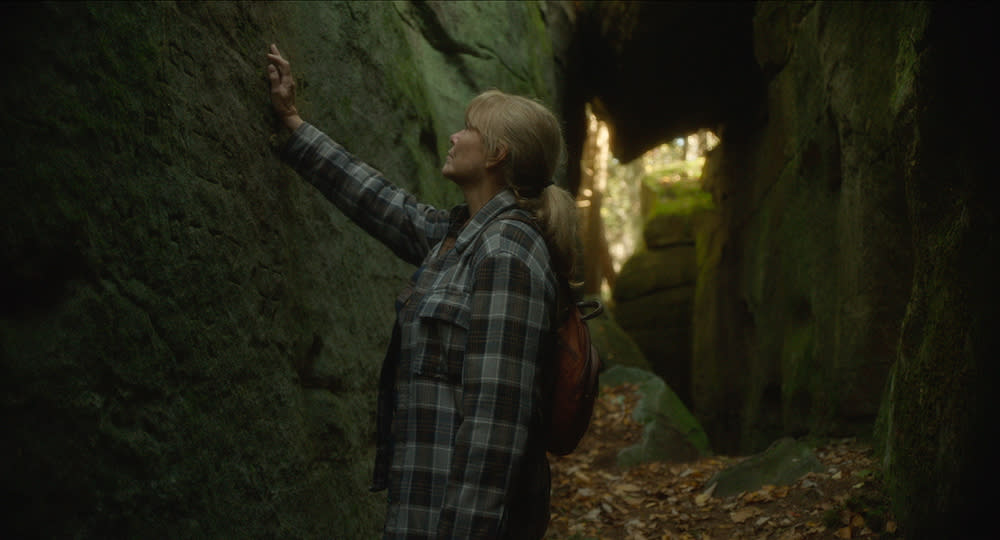Film Review: ‘Colewell’

Populated by characters who rarely raise their voices, much less engage in anything that might qualify as “action,” “Colewell” is a character study that’s almost too subdued for its own good. Fortunately, writer-director Tom Quinn has a keen eye for telling details, as well as a superb lead actress in Karen Allen, who stars as a postal worker facing an uncertain future. In an era of louder-than-loud tentpoles, it’s not clear that this small-scale drama has steadier prospects than its protagonist. Discerning audiences, however, should warm to its understated charms, should it be picked up from among the titles in the San Francisco Int’l Film Festival’s acquisitions-oriented “Launch” section, where it made its world premiere.
In the tiny enclave of Colewell, Penn., Nora (Allen) follows a daily routine of making coffee, feeding her chickens, cooking eggs, and opening the post office that she oversees — and which is located, conveniently, in her own house. It’s a gathering place for the area’s locals, and provides a sense of purpose and community for Nora, a solitary woman whose only nominal friend is Charles (Kevin J. O’Connor), the colleague who delivers mail to her each day, and for his trouble — and convivial chitchat — always departs with a few freshly laid eggs.
Related stories
Film News Roundup: 'Armistead Maupin's Tales of the City' to Open San Francisco Film Festival
Horror Works in Any Language at Cannes
“Colewell” depicts all of this with a patient hand, buoyed by cinematographer Paul Yee’s inviting visuals and Dara Taylor’s melancholy score. The director’s delicate aesthetics are in tune with his plotting, which reveals Nora through her day-to-day habits and sporadic interactions, as well as via the wistful sorrow residing in her eyes. Such emotion is soon joined by anger, frustration and fear when she learns that the Post Office plans to close her outpost, leaving her with two options: She can retire, or else transfer to a distant new job that would require a bus commute. Nora wants neither, given that they both spell the end of her comfortable reality. Subsequent sit-downs with corporate bigwigs, and town hall meetings where residents air their grievances, only amplify her hopelessness and longing for a bygone past.
Offhand references to a husband and youthful hitchhiking convey how Nora wound up in this remote rural settlement, and also why she might balk at altering her circumstances. Quinn’s evocation of his rural milieu is as heartfelt as Allen’s tender performance as Nora, who, just beneath her friendly exterior, is a haunted soul scared of being alone, starting over, and the idea that obsolescence may be drawing near. Those anxieties are suggested by an opening quotation about how life inherently feels — namely, like it goes on “forever and not long enough” — as well as by intermittent scenes involving its speaker, Ella (Hannah Gross), a young hitchhiker with a complicated attitude about change.
Ella’s relationship to Nora is never overtly explained, and yet it remains clear from, among other things, Quinn’s dreamy juxtapositions of the two. Their dynamic is one of many “Colewell” elements to benefit from the filmmaker’s confident storytelling, which efficiently addresses the push-pull between youth and age, movement and stasis, courage and timidity. Even at a concise 79 minutes, its tranquility — enhanced by gauzy images spied through sheer window curtains, and reflections of Nora and Ella in foggy mirrors and nighttime windows — occasionally verges on the somnambulistic. Still, the film’s finely crafted serenity is in keeping with its main character’s secluded state of affairs, and mind.
Sign up for Variety’s Newsletter. For the latest news, follow us on Facebook, Twitter, and Instagram.

